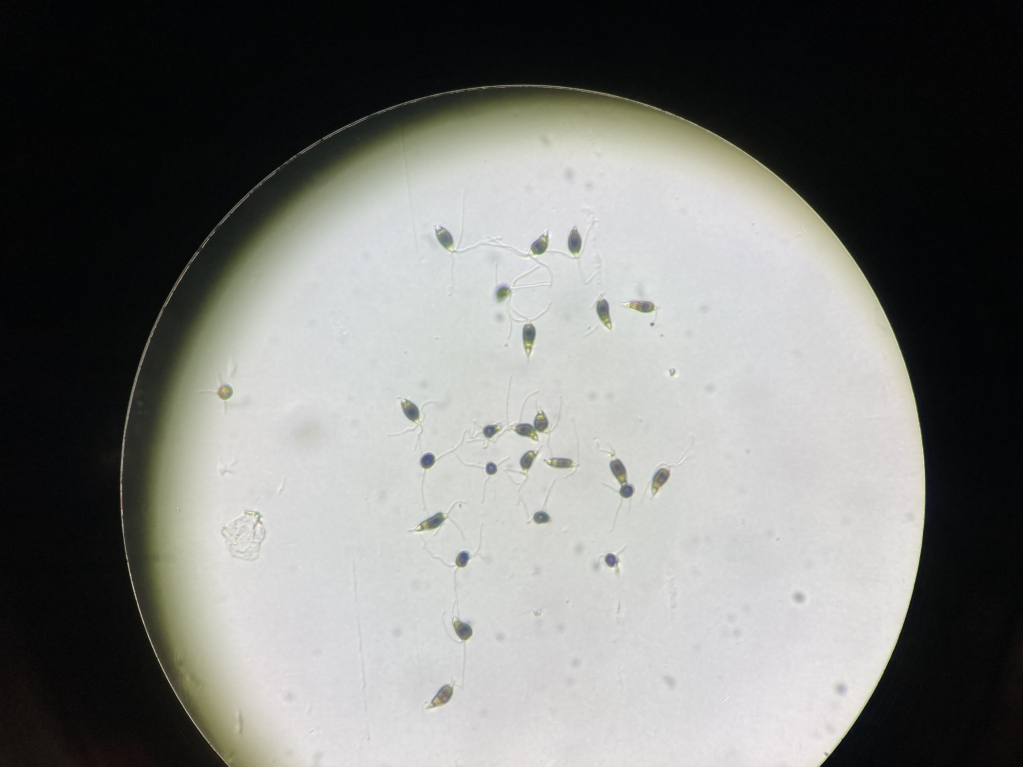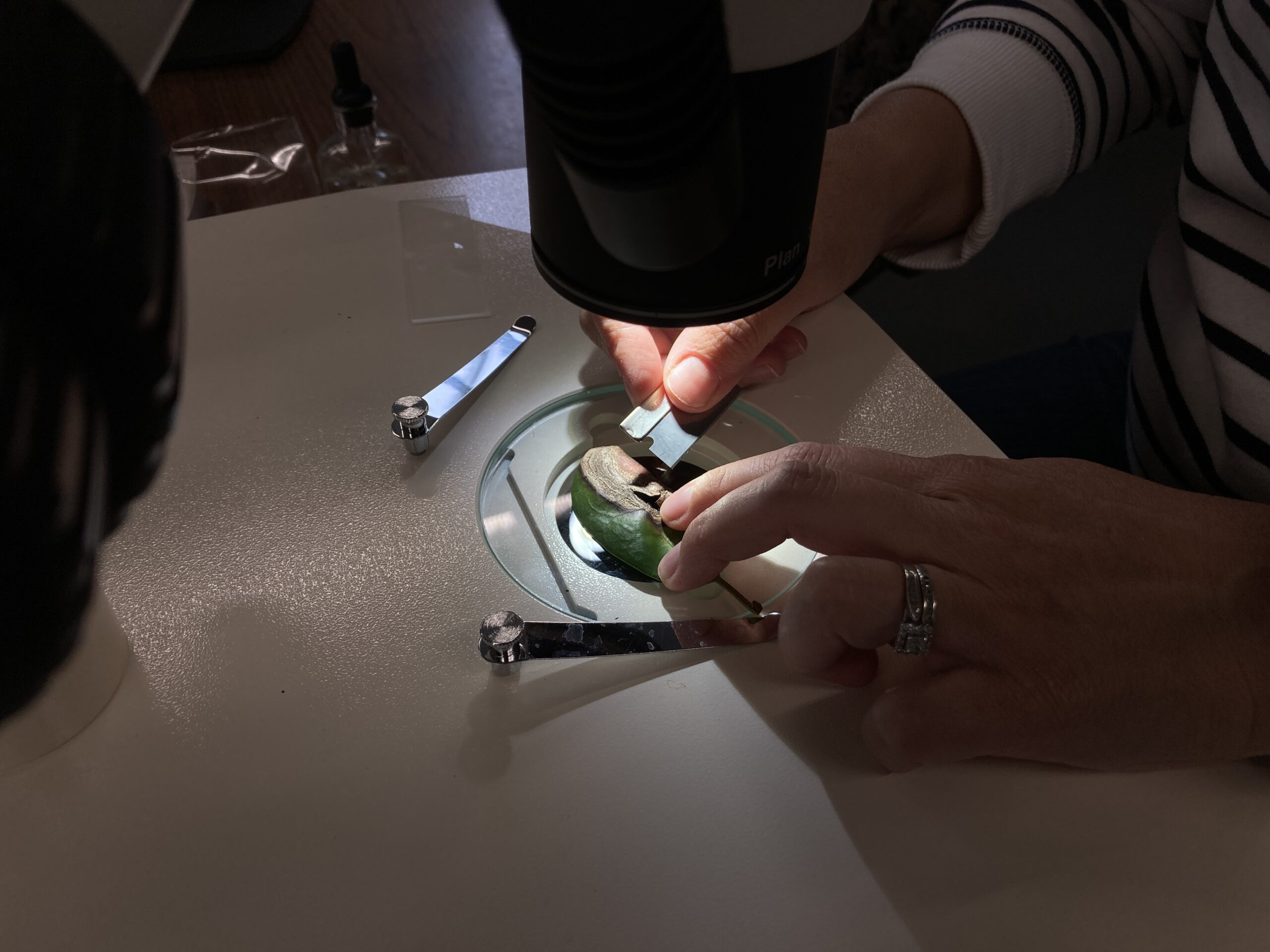Program relocated to Flagg Road
The University’s unique plant rescue lab, takes in sick plants and studies how to fix them. PHOTO CREDIT: Eddie Melfie | Contributing Photographer
In the winter of 2021, workers at the University of Rhode Island’s Plant Protection Clinic moved into where the old URI Turf building was at the bottom of campus.
The clinic itself started in 1978 and has been serving Rhode Island and its farmers ever since. They take plant samples from people and examine them with microscopes, looking for insects, bacteria or anything else that could possibly be killing the plants or making them sick.
Heather Faubert, research associate in the plant sciences department and director of the plant protection clinic, said that their service was integral in helping local farmers and plant lovers.
“I’m offering cooperative extension,” Faubert said. “And we diagnose problems for farmers that are growing crops, for landscapers taking care of people’s yards and then also just general plant owners that have a problem with their plant.”
Faubert has been working at URI since 1981 in the Plant Sciences Department. She has been working at the clinic ever since 2005 and has become the director since then.
She and her co-workers help a lot of people outside of the URI community. Faubert said that she hasn’t seen any students come to the clinic and explained that it’s more than likely due to a lack of publicity.
“It could probably be better utilized with general plant owners,” Faubert said. “I think I usually hear from lots of landscapers, I work with lots of farmers. But maybe, you know, for the general public it’s probably not as publicized as it should be.”
Before moving into the new building, the plant clinic used to be a small 12 by 12 foot room in the main floor of the greenhouse complexes. Now, the clinic has a small building with three offices and a classroom, lab and a food processing room.
Faubert also mentioned that she receives a lot of help from her fellow colleague Keiddy Urrea-Morawicki, who has received her Ph.D. in plant pathology from the University of Arkansas. She works at the clinic as a diagnostician and is working at the clinic only until the end of the year.
Urrea-Morawicki started at the clinic about six months ago and saw the old room that used to be the clinic. She also talked about her position at the clinic as a diagnostician.
“So what we do here is plant diagnostics problems, so we diagnose what the problem is, what’s wrong with plants or what type of plant it is,” Urrea-Morawicki said.

There is a $10 charge to have plants checked out by the clinic. Both Faubert and Urrea-Morawicki explained that that money goes towards whatever supplies, including more microscopes and technology, they might need now or in the future to examine the plant samples they receive.
“Anybody’s welcome to see what we do here,” Urrea-Morawicki said. “I think it’s a really good program for the University and for Rhode Island. We support everybody.”





